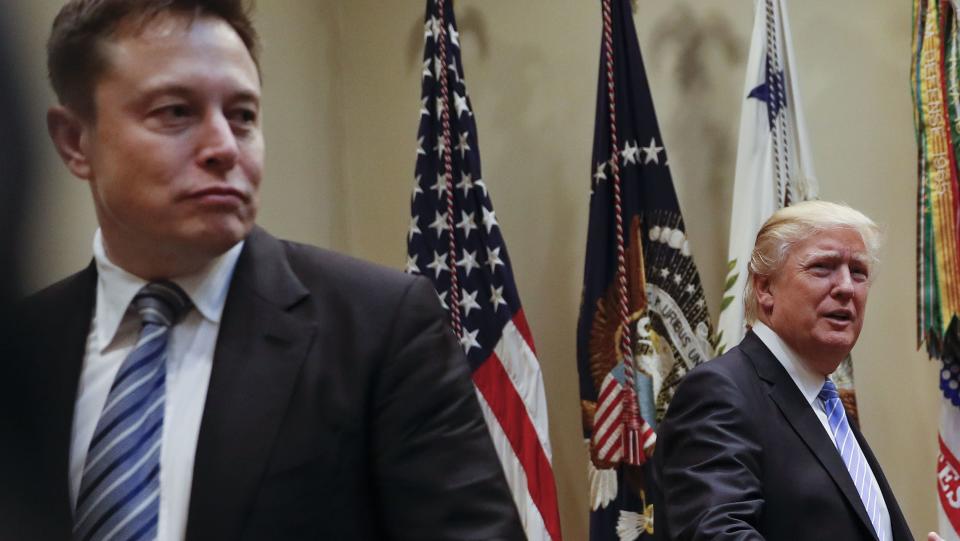Some in China thank Trump for Tesla price cuts, but the cars are still pricey
China said on Tuesday it will slash the tariff of imported vehicles to 15% from 25%, effective July 1. And 24 hours following the announcement, Tesla (TSLA) cut the price of its cars in China.
The new prices haven’t been updated on Tesla’s website yet, but Yahoo Finance obtained the price of each Tesla model in China and calculated price reductions of about 6.4% for each.
The cheapest Model S 75D will go for $113,000 after an $8,000 cut, which is still more than the cost of the same model in the U.S., where it is sold for $75,700. Keep in mind that both countries offer electric-vehicle buyers incentives. In the U.S., Tesla owners can enjoy a $7,500 federal tax credit for purchases under $200,000 and cars with a specific battery size. In China, buying a Tesla in some large cities come with a free license plate — a major headache for car buyers in China because plates could cost thousands of dollars and take months to obtain.
Tesla is among the first foreign carmakers to unveil lower retail prices in China. Other automakers including BMW and Toyota said they will also adjust prices to serve customers.

Unlike other cars sold by local dealerships, Tesla sells directly to consumers through its own stores in both the U.S. and China. Besides having to pay an import duty, Tesla has to pay for shipping cars to China from California, where it makes its cars, as well as other taxes in China.
This is a long-awaited move by Tesla CEO and founder Elon Musk who once complained to President Donald Trump on Twitter that China’s tariff makes Tesla less competitive, “like competing in an Olympic race wearing lead shoes.”
Tesla is poised to be the biggest winner from the tariff cut. In 2017, imported cars accounted for only 4.6% of China’s market. American automakers have largely set up joint ventures in China to avoid the tariff and take advantage of the lower production cost. But Tesla still makes all of its electric vehicles in California. And Elon Musk eagerly wants to capture the booming electric-vehicle market in China, where half of the electric vehicles in the world were sold last year.
Tesla is still a premium car

The price cut, however, doesn’t necessarily make Tesla vehicles more affordable or puts its cars at the same price level as its domestic rivals. BYD, the Shenzhen-based automaker which Berkshire Hathaway owns 10%, sells its flagship electronic Qin for $31,000. BAIC EC-Series, the best selling electric vehicle in China last year, costs about $22,000. NIO, a Chinese premium electric vehicle maker sets the price for ES8 SUV at $60,000, still about half the price of a Tesla even after the price cut.
“So, the price has shifted from the previous category of “exceptionally expensive” at $121,000 to a new category of “less exceptionally expensive”, Michael Dunne, president of China-based auto consultancy Dunne Automotive, told Yahoo Finance.
Still, people appreciate the discount and some are even applauding Trump’s efforts for making it happen. “Thank President Trump! Keep up the good work,” wrote one user on Weibo, China’s Twitter.
But hours later, Trump’s tweet on Wednesday morning shows some uncertainties over the trade deal with China. He says it’s going nicely but “in the end we will probably have to use a different structure in that this will be too hard to get done and to verify results after completion.”
“I just told my parents to buy cars as soon as possible, especially ones like Tesla which just has already lowered its price,” another Weibo user commented on Trump’s tweet, “Who knows what will change by July?”
Krystal Hu covers technology and economy for Yahoo Finance. Follow her on Twitter.
Read more:
How Trump helps German automakers by pushing China’s tariff cut
Why the soybean could be China’s trump card in the trade war



